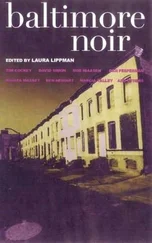Owen Wister - Lady Baltimore
Здесь есть возможность читать онлайн «Owen Wister - Lady Baltimore» весь текст электронной книги совершенно бесплатно (целиком полную версию без сокращений). В некоторых случаях можно слушать аудио, скачать через торрент в формате fb2 и присутствует краткое содержание. Жанр: Вестерн, на английском языке. Описание произведения, (предисловие) а так же отзывы посетителей доступны на портале библиотеки ЛибКат.
- Название:Lady Baltimore
- Автор:
- Жанр:
- Год:неизвестен
- ISBN:нет данных
- Рейтинг книги:5 / 5. Голосов: 1
-
Избранное:Добавить в избранное
- Отзывы:
-
Ваша оценка:
- 100
- 1
- 2
- 3
- 4
- 5
Lady Baltimore: краткое содержание, описание и аннотация
Предлагаем к чтению аннотацию, описание, краткое содержание или предисловие (зависит от того, что написал сам автор книги «Lady Baltimore»). Если вы не нашли необходимую информацию о книге — напишите в комментариях, мы постараемся отыскать её.
Lady Baltimore — читать онлайн бесплатно полную книгу (весь текст) целиком
Ниже представлен текст книги, разбитый по страницам. Система сохранения места последней прочитанной страницы, позволяет с удобством читать онлайн бесплатно книгу «Lady Baltimore», без необходимости каждый раз заново искать на чём Вы остановились. Поставьте закладку, и сможете в любой момент перейти на страницу, на которой закончили чтение.
Интервал:
Закладка:
"The children!" cried John Mayrant. "Why, it's for their sake deserted women abstain from divorce!"
"Juliet would see deeper than such mothers. She could not have her little sons and daughters grow up and comprehend their father's absences, and see their mother's submission to his returns for such discovery would scorch the marrow of any hearts they had."
At this, as we came out of the Library, he made an astonishing rejoinder, and one which I cannot in the least account for: "South Carolina does not allow divorce."
"Then I should think," I said to him, "that all you people here would be doubly careful as to what manner of husbands and wives you chose for yourselves."
Such a remark was sailing, you may say, almost within three points of the wind; and his own accidental allusion to Romeo had brought it about with an aptness and a celerity which were better for my purpose than anything I had privately developed from the text of Bottom and Titania; none the less, however, did I intend to press into my service that fond couple also as basis for a moral, in spite of the sharp turn which those last words of mine now caused him at once to give to our conversation. His quick reversion to the beginning of the talk seemed like a dodging of remarks that hit too near home for him to relish hearing pursued.
"Well, sir," he resumed with the same initial briskness, "I was ashamed if you were not."
"I still don't make out what impropriety we have jointly committed."
"What do you think of the views you expressed about our country?"
"Oh! When we sat on the gravestones."
"What do you think about it to-day?"
I turned to him as we slowly walked toward Worship Street. "Did you say anything then that you would take back now?"
He pondered, wrinkling his forehead. "Well, but all the same, didn't we give the present hour a pretty black eye?"
"The present hour deserves a black eye, and two of them!"
He surveyed me squarely. "I believe you're a pessimist!"
"That is the first trashy thing I've heard you say."
"Thank you! At least admit you're scarcely an optimist."
"Optimist! Pessimist! Why, you're talking just like a newspaper!"
He laughed. "Oh, don't compare a gentleman to a newspaper."
"Then keep your vocabulary clean of bargain-counter words. A while ago the journalists had a furious run upon the adjective 'un-American.' Anybody or anything that displeased them was 'un-American.' They ran it into the ground, and in its place they have lately set up 'pessimist,' which certainly has a threatening appearance. They don't know its meaning, and in their mouths it merely signifies that what a man says snakes them feel personally uncomfortable. The word has become a dusty rag of slang. The arrested burglar very likely calls the policeman a pessimist; and, speaking reverently and with no intention to shock you, the scribes and Pharisees would undoubtedly have called Christ a pessimist when He called them hypocrites, had they been acquainted with the word."
Once more my remarks drew from the boy an unexpected rejoinder. We had turned into Worship Street, and, as we passed the churchyard, he stopped and laid his hand upon the railing of the pate.
"You don't shock me," he said; and then: "But you would shock my aunts." He paused, gazing into the churchyard, before he continued more slowly: "And so should I — if they knew it — shock them."
"If they knew what?" I asked.
His hand indicated a sculptured crucifix near by.
"Do you believe everything still?" he answered. "Can you?"
As he looked at me, I suppose that he read negation in my eyes.
"No more can I," he murmured. Again he looked in among the tombstones and flowers, where the old custodian saw us and took off his hat. "Howdy, Daddy Ben!" John Mayrant returned pleasantly, and then resuming to me: "No more can I believe everything." Then he gave a brief, comical laugh. "And I hope my aunts won't find that out! They would think me gone to perdition indeed. But I always go to church here" (he pointed to the quiet building, which, for all its modest size and simplicity, had a stately and inexpressible charm), "because I like to kneel where my mother said her prayers, you know." He flushed a little over this confidence into which he had fallen, but he continued: "I like the words of the service, too, and I don't ask myself over-curiously what I do believe; but there's a permanent something within us — a Greater Self — don't you think?"
"A permanent something," I assented, "which has created all the religions all over the earth from the beginning, and of which Christianity itself is merely one of the present temples."
He made an exclamation at my word "present."
"Do you think anything in this world is final?" I asked him.
"But—" he began, somewhat at a loss.
"Haven't you found out yet that human nature is the one indestructible reality that we know?"
"But—" he began again.
"Don't we have the 'latest thing' all the time, and never the ultimate thing, never, never? The latest thing in women's hats is that huge-brimmed affair with the veil as voluminous as a double-bed mosquito netting. That hat will look improbable next spring. The latest thing in science is radium. Radium has exploded the conservation of energy theory — turned it into a last year's hat. Answer me, if Christianity is the same as when it wore among its savage ornaments a devil with horns and a flaming Hell! Forever and forever the human race reaches out its hand and shapes some system, some creed, some government, and declares: 'This is at length the final thing, the cure-all,' and lo and behold, something flowing and eternal in the race itself presently splits the creed and the government to pieces! Truth is a very marvelous thing. We feel it; it can fill our eyes with tears, our hearts with joy, it can make us die for it; but once our human lips attempt to formulate and thus imprison it, it becomes a lie. You cannot shut truth up in any words."
"But it shall prevail!" the boy exclaimed with a sort of passion.
"Everything prevails," I answered him.
"I don't like that," he said.
"Neither do I," I returned. "But Jacob got Esau's inheritance by a mean trick."
"Jacob was punished for it."
"Did that help Esau much?"
"You are a pessimist!"
"Just because I see Jacob and Esau to-day, alive and kicking in Wall Street, Washington, Newport, everywhere?"
"You're no optimist, anyhow!"
"I hope I'm blind in neither eye."
"You don't give us credit—"
"For what?"
"For what we've accomplished since Jacob."
"Printing, steam, and electricity, for instance? They spread the Bible and the yellow journal with equal velocity."
"I don't mean science. Take our institutions."
"Well, we've accomplished hospitals and the stock market — a pretty even set-off between God and the devil."
He laughed. "You don't take a high view of us!"
"Nor a low one. I don't play ostrich with any of the staring permanences of human nature. We're just as noble to-day as David was sometimes, and just as bestial to-day as David was sometimes, and we've every possibility inside us all the time, whether we paint our naked skins, or wear steel armor or starched shirts."
"Well, I believe good is the guiding power in the world."
"Oh, John Mayrant! Good and evil draw us on like a span of horses, sometimes like a tandem, taking turns in the lead. Order has melted into disorder, and disorder into new order — how many times?"
"But better each time."
"How can you know, who never lived in any age but your own?"
"I know we have a higher ideal."
"Have we? The Greek was taught to love his neighbor as himself. He gave his great teacher a cup of poison. We gave ours the cross."
Again he looked away from me into the sweet old churchyard. "I can't answer you, but I don't believe it."
Читать дальшеИнтервал:
Закладка:
Похожие книги на «Lady Baltimore»
Представляем Вашему вниманию похожие книги на «Lady Baltimore» списком для выбора. Мы отобрали схожую по названию и смыслу литературу в надежде предоставить читателям больше вариантов отыскать новые, интересные, ещё непрочитанные произведения.
Обсуждение, отзывы о книге «Lady Baltimore» и просто собственные мнения читателей. Оставьте ваши комментарии, напишите, что Вы думаете о произведении, его смысле или главных героях. Укажите что конкретно понравилось, а что нет, и почему Вы так считаете.










